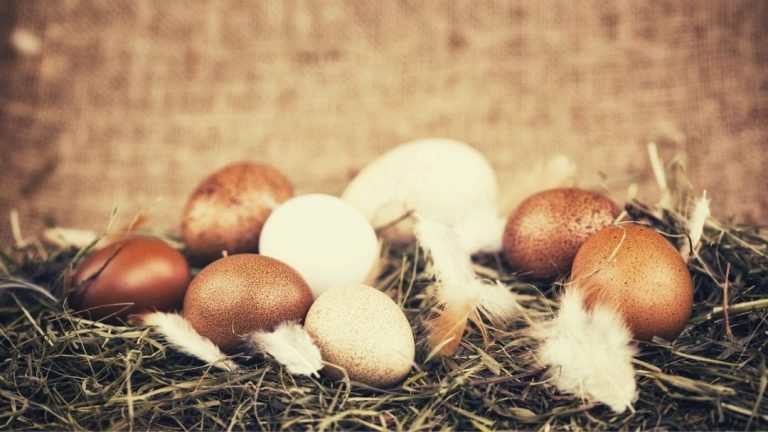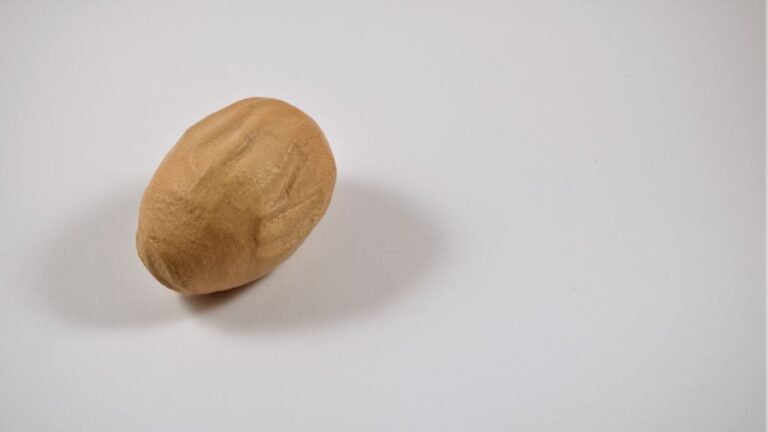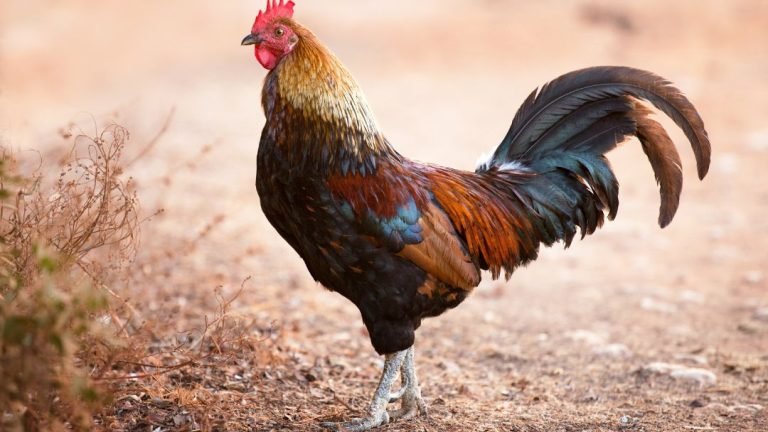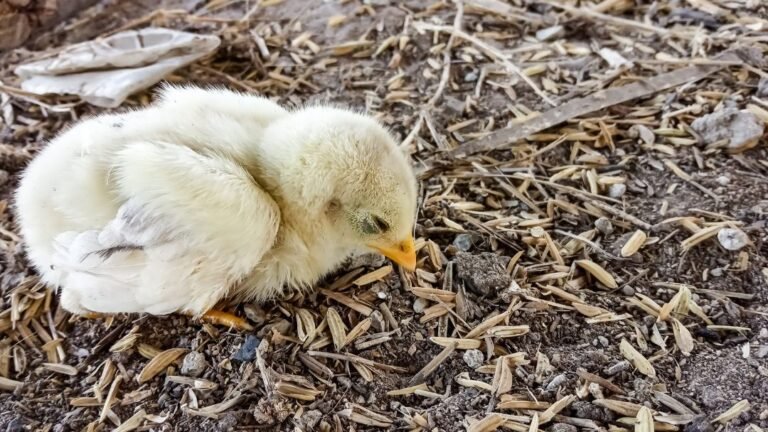Possums do not typically attack chickens. However, they may pose a threat to chickens’ food and eggs if not properly secured.
Possums are unlikely to directly attack chickens, but that doesn’t mean they don’t pose a potential problem for chicken owners. These mostly nocturnal creatures are scavengers and opportunistic eaters, meaning they are attracted to sources of food. As a result, they may target chickens’ feed and steal their eggs if given the chance.
Therefore, it is essential for chicken owners to take measures to protect their flock by securing their food and nesting areas. We will explore the relationship between possums and chickens, learn about the potential risks they may pose, and discuss effective strategies to keep possums at bay. We will also provide pictures to enhance your understanding.
Understanding The Behavior Of Possums
Understanding the behavior of possums is essential for any chicken owner, as these nocturnal creatures can potentially pose a threat to your flock. In this article, we will explore the natural habitat of possums and their presence in residential areas, as well as delve into their nocturnal behavior and feeding habits.
Natural Habitat Of Possums And Their Presence In Residential Areas
Possums are native to Australia, but they have thrived in various habitats around the world. In their natural habitat, possums reside in forests, woodlands, and even urban areas. Their adaptability enables them to survive in diverse environments, making encounters with these marsupials possible in residential areas as well.
Residential areas often provide possums with easily accessible sources of food and shelter, including gardens, bird feeders, and compost bins. Additionally, possums find refuge in trees, roofs, attics, and sheds. Their ability to climb trees and jump up to 13 feet allows them to navigate residential areas with relative ease.
To deter possums from invading your property, it is important to secure potential food sources and block access to entry points. Installing barriers, such as fences or wire mesh, around chicken coops and sealing any openings in structures can help prevent possums from reaching your chickens.
Nocturnal Behavior And Feeding Habits Of Possums
Possums are primarily nocturnal creatures, meaning they are most active during the night. Their large, reflective eyes and keen sense of hearing allow them to navigate in the dark. Although they may occasionally venture out during the day, they prefer to stay hidden in their nests during daylight hours.
Feeding on a diverse diet, possums are opportunistic foragers. While they primarily consume plant matter such as leaves, fruits, and flowers, possums are also known to eat small animals, insects, bird eggs, and garbage. This versatile feeding behavior allows them to adapt to their surroundings and make use of available food sources.
To minimize the risk possums pose to your chickens, it is important to secure their food and water sources. Keep feeders elevated and protected from possums’ reach. Additionally, clear any fallen fruits or plant debris that may attract these opportunistic feeders.
Possum Attacks On Chickens: Causes And Methods
Do possums attack chickens? This is a common concern for many chicken owners. While possums are known to be opportunistic predators, they do pose a threat to backyard chickens. In this article, we will explore the causes and methods of possum attacks on chicken coops.
Overview Of Possum Attacks On Chicken Coops
Possums are primarily nocturnal creatures, which means they are most active during the night. This makes them a significant threat to chickens, as our feathered friends typically roost at night, leaving them vulnerable to predation.
Possums are skilled climbers and have the ability to scale fences and trees, giving them access to chicken coops. They are also adept at digging, allowing them to burrow into chicken enclosures from the ground. This combination of climbing and digging makes it challenging to keep possums out of chicken coops.
The presence of food can also attract possums to chicken coops. If chickens are fed outside or if there is spilled feed in the coop, possums are likely to be drawn in, increasing the chances of an attack.
How Possums Gain Access To Chicken Coops
Possums can gain access to chicken coops in various ways:
- Scaling fences: Possessing sharp claws and dexterity, possums can effortlessly climb over fences, even those with a considerable height. This makes it crucial for chicken owners to ensure coop fences are secure and have no gaps.
- Burrowing: Possums are skilled diggers, capable of excavating tunnels to gain entry into chicken enclosures from beneath. It is essential to fortify coop floors and the areas surrounding the coop to prevent possums from burrowing their way in.
The Different Ways Possums Attack And Harm Chickens
When possums manage to infiltrate chicken coops, they have several methods of attacking and harming chickens:
- Killing chickens: Possums are known to prey on chickens, particularly young chicks and smaller hens. They have strong jaws and sharp teeth, which can cause severe injuries or even kill chickens.
- Chasing and stressing chickens: Possums may chase chickens around the coop, causing distress and anxiety. Stress can weaken the immune system of chickens, making them more susceptible to diseases and infections.
- Stealing eggs: Possums have a taste for eggs and will eagerly raid nests to consume them. This not only deprives chicken owners of their valuable source of food but can also lead to a reduction in future egg production.
It is important for chicken owners to take proactive measures to protect their flock from possum attacks. This includes securing coop fencing, reinforcing coop floors, and minimizing food sources that may attract possums.
By understanding the causes and methods of possum attacks on chicken coops, chicken owners can implement effective strategies to safeguard their feathery companions. Stay tuned for our upcoming articles on possum deterrents and methods for keeping chickens safe from these nocturnal predators.
Signs Of Possum Attacks On Chickens
Protecting your chickens from potential predators is a crucial aspect of raising backyard poultry. While we often worry about foxes, raccoons, and other common predators, possums can also pose a threat to your flock. These nocturnal creatures are known to attack chickens, especially during the night when the birds are asleep. Therefore, it’s important to be vigilant and familiarize yourself with the signs of possum attacks on chickens to protect your feathered friends.
Identifying Physical Signs Of Possum Attacks On Chickens
If you suspect a possum has targeted your chickens, it’s essential to examine your flock for physical signs of an attack. By carefully observing their bodies, you can identify key indicators that a possum may be responsible. Look out for the following signs:
- Bite marks on the back and neck: Possums typically go for the throat area when attacking chickens. So, check for puncture wounds or deep scratches around these areas.
- Scratch marks on the coop: Possums may use their sharp claws to pry into the chicken coop. Inspect the surrounding coop structure for any visible scratch marks.
- Missing or injured feathers: During a possum attack, chickens may lose feathers or sustain injuries to their plumage. Pay attention to any unusual bald patches or damaged feathers.
- Broken eggs: Possums often attempt to steal eggs from nesting boxes. If you notice a higher number of broken or partially eaten eggs, it could be a sign that a possum has targeted your chickens.
Remember, it’s important to act swiftly if you detect any of these signs. Promptly addressing the issue can prevent further harm to your flock and discourage possums from returning.
Behavioral Changes In Chickens After A Possum Attack
Possum attacks can have a significant impact on the behavior of your chickens. After such an incident, it’s not uncommon for the birds to exhibit noticeable changes in their actions and reactions. Keep an eye out for the following behavioral shifts:
- Increased vigilance: Chickens may become more on edge, constantly on the lookout for potential threats. This can manifest as frequent squawking or heightened alertness.
- Decreased egg production: The stress caused by a possum attack can disrupt the egg-laying routine of your hens. You may notice a decline in egg production or even a temporary halt.
- Reluctance to roost: Chickens that have experienced a possum attack may develop an aversion to roosting in their usual location. Instead, they might seek alternative perches that they perceive as safer.
- Unusual timidity: Fear can linger in your chickens after an attack. They may display signs of nervousness, such as hesitancy to venture too far from the coop or avoidance of open spaces.
Taking note of these behavioral changes can help you assess the impact of a possum attack on your flock. It’s crucial to provide the necessary support and reassurance to help your chickens recover from the incident.
Shocking Pictures Of Possum Attacks On Chickens
Introduction
Prepare to be shocked as we delve into the reality of possum attacks on unsuspecting chickens. In this section, we will explore the extent of damage caused by possums, exemplified by real-life images that capture the shocking aftermath of these encounters. These pictures are not for the faint-hearted, but they serve as a compelling reminder of the need to protect our feathered friends from these nocturnal pests.
Real-life Images Showcasing Possum Attacks On Chickens
1. 
The first image depicts a poignant scene of a possum in the act of attacking a chicken. With its menacing eyes and sharp claws, the possum clearly means business. The chicken, on the other hand, is left in a state of distress, its feathers scattered and clumps of blood staining its plumage.
2. 
The second picture showcases the aftermath of a possum attack on an unfortunate flock. Feathers are strewn across the ground, a heartbreaking testament to the turbulent encounter between the possum and the chickens. This image captures the devastating impact these predator-prey interactions can have on a backyard chicken coop.
3. 
The third and final image, perhaps the most harrowing of all, highlights the resilience of a brave chicken that managed to escape the clutches of a possum. Although injured and visibly distressed, this courageous bird serves as a symbol of hope, reminding us of the importance of safeguarding our flocks from potential predators.
Understanding The Extent Of Damage Caused By Possums
The shocking pictures presented above underscore the urgent need to protect chickens from possum attacks. Possums are known to be opportunistic and relentless predators that can cause significant harm to your flock. The extent of the damage can vary, ranging from maimed or killed chickens to psychological trauma and stress-induced health problems among survivors. It is crucial for poultry owners to remain vigilant and implement effective measures to deter possums from feasting on their feathered companions.
Remember, prevention is key when it comes to possum-chicken conflicts. By securing chicken coops with sturdy fences, sealing any potential entry points, and implementing deterrent strategies such as motion-activated lights or noise devices, you can significantly reduce the risk of possum attacks on your beloved chickens.
In conclusion, these shocking pictures of possum attacks on chickens serve as a stark reminder of the dangers these nocturnal predators pose to backyard poultry. Let them fuel your determination to protect and safeguard your flock, ensuring their safety and well-being in the face of potential threats.
Preventing Possum Attacks On Chickens
Possums are notorious for attacking and killing chickens, making them a common concern for poultry owners. However, with proper precautionary measures, you can deter these nocturnal creatures from causing harm to your feathered friends. In this article, we will discuss effective ways to prevent possum attacks on chickens, allowing you to safeguard your flock and ensure their safety.
Securing Chicken Coops To Deter Possums
Securing your chicken coops is the first line of defense against possum attacks. These resourceful creatures are nimble climbers and can easily access your coop if not properly secured. To keep them at bay, follow these steps:
- Seal any gaps: Inspect the coop for any openings or gaps that possums can squeeze through. Pay close attention to walls, windows, doors, and the roof. Use wire mesh or hardware cloth to cover these openings securely.
- Reinforce doors and windows: Possums are skilled at finding weak points in coop entrances. Ensure all doors and windows are made of sturdy materials and have securely fitted frames. Consider adding latches or locks as an extra precaution.
- Elevate the coop: Raise the coop off the ground by at least two feet to make it more challenging for possums to reach. This can be achieved by using sturdy stilts or cinder blocks. Remember to cover any exposed gaps at the bottom to prevent them from squeezing through.
- Install an electric fence: If you are dealing with persistent possums, installing an electric fence around your coop can be an effective deterrent. Follow the manufacturer’s instructions on safe installation to ensure optimal protection for your chickens.
Natural And Humane Methods To Keep Possums Away From Chickens
If you prefer natural and humane methods to ward off possums, there are several options available:
- Deterrent plants: Certain plants possess strong odors that possums find unpleasant. Consider planting marigolds, rosemary, lavender, or citrus trees near the coop as natural repellents.
- Motion-activated devices: Installing motion-activated sprinklers or lights near the coop can startle and deter possums. These devices are triggered by movement and provide an effective deterrent without causing harm.
- Secure food sources: Possums are attracted to food left out in the open. Ensure all chicken feed, grains, and other food sources are stored in secure, sealed containers that possums cannot access.
- Remove potential hiding spots: Possums seek shelter in dense vegetation and piles of debris. Clearing out brush, trimming branches, and removing clutter close to the coop can discourage possums from making themselves at home.
- Use natural repellents: Sprinkling a mixture of garlic cloves, chili powder, or vinegar around the coop perimeter can help keep possums away. These natural odors are unappealing to possums, discouraging them from coming near.
In conclusion, preventing possum attacks on chickens begins with securing the chicken coops and implementing natural deterrents. By taking these measures, you can create a safer environment for your chickens and minimize the risk of possum-related incidents. Keep in mind that consistent maintenance and vigilance are crucial for long-term success in keeping possums at bay.
Conclusion
Possums can pose a real threat to chickens, especially during the night when they are most active. These nocturnal creatures are driven by their instinct to hunt and scavenge for food, which can lead them to attack chickens and their eggs.
It is crucial for chicken owners to take necessary precautions to protect their flock from possums. Implementing secure enclosures and using deterrents can significantly reduce the risk of possum attacks. By being proactive and vigilant, chickens can remain safe from these potential predators.




